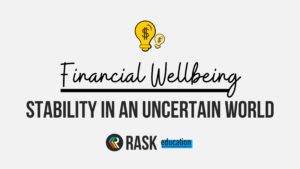Debt by itself is not always a bad thing, but it’s important to understand the benefits and risks before approaching the bank.
Debt Basics
Individuals and companies typically use loans, mortgages and credit cards to buy things they cannot afford using their own money.
In exchange for lending the money, banks and other loan providers expect the loan to be repaid in full, by a certain date. They will usually create a payment plan at the beginning of the loan, requiring you to make regular repayments.
In addition to the loan amount, banks also charge interest. This can be a fixed amount like, “5% interest for two years” or variable, where the interest rate can change each month.
If the bank thinks you are a riskier borrower, chances are, they will ask you to pay a higher interest rate.
The Comparision Rate
On a loan, the ‘comparison rate‘ is the interest rate which also includes account fees and annual interest charges. It makes comparing the rates offered by two different lenders easier.
Mortgage Repayments Calculator
Is interest tax deductible?
Not always, but it can be. Speak to your tax agent about tax deductions for loans used to make investments.
What happens if I don’t pay back a loan?
If a loan is not repaid by the due date or you miss a few repayments, you may face penalties, including receiving a poor credit rating or court action.
Is debt risky?
Typically, the more debt you use to buy something, the more risk you are taking.
What is ‘bad debt’?
Using debt might be a bad idea when you:
- Use it to buy things you don’t need (e.g. shoes)
- Use it to buy things that fall in value (e.g. televisions)
- Cannot afford to make the required interest repayments
- Have multiple debts, like credit cards, and each one charges you account fees and late repayment fees
- Do not have a budget
When is debt good?
Using a loan could be a good idea when the item you buy goes up in value, like a house. Or, if the interest is tax deductible. But just remember the bank is pocketing the interest you pay on the debt.
Debt Reduction Strategies
When you find yourself in lots of debt, some ways to ease the pressure might include:
- Cutting up your credit cards
- Speaking with a professional
- Selling some assets
- Consolidating all your debts into one; for example, you may be able to pay off multiple credit card accounts with a loan at a lower interest rate; or
- Creating a simple weekly or monthly budget to identify areas where you can cut spending
Who can help?
If you find yourself with too much debt, you should visit the National Debt Helpline website and make a free call to one of their financial counsellors before taking any action. They can help you come up with a plan to tackle your debts — and best of all, it’s free.[ls_content_block id=”27643″ para=”paragraphs”]



